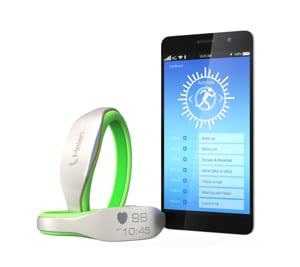
June 23, 2014
Mobile Health: Life-Changing Innovations In The Palm Of Your Hand
By Michael D. Shaw
The mobile health revolution has been discussed in this column on previous occasions. While it is a cliché to note that people had better start taking ownership of their own health, the tools of mHealth, as it is now called, will prove invaluable to achieve this goal. Two years ago, at a summit on mHealth organized by the FCC, the term “mobile health” was expanded to include wireless health and e-Care technologies that improve patient care and the efficiency of health care delivery.
“e-Care” is the electronic exchange of information—data, images and video—to aid in the practice of medicine and advanced analytics. This encompasses technologies that enable video consultation, remote monitoring and image transmission (store-and-forward) over fixed or mobile networks.
Fortunately, these high-minded definitions are backed up by thousands of useful and inexpensive apps. What’s more, these apps are cataloged and rated by any number of sources—official and otherwise. Let’s take a look at a few popular mHealth apps…
The CDC Mobile App Touted as putting health information at your fingertips, it features timely news articles and CDC press releases; informs of infectious disease outbreaks currently being monitored by CDC; links to a host of journal articles; and accesses CDC’s podcasts, blogs, and social media.
MyNetDiary Multiple platform comprehensive weight loss software, featuring large food database. Associated mobile apps include diabetes tracking, exercise logging, and an online community.
Period Tracker Self-explanatory. Includes features to track symptoms, moods, notes, weight, and temperature. Complete with charts, calendar, email backup and restore, passcode, and more.
Epocrates Basic free app provides drug information, drug interactions, pill ID, and formulary. Paid versions add disease information, diagnostic/lab tests, and cross-platform access.
An exciting new facet to mHealth involves the use of a mobile platform with accessory devices. Examples include environmental sensors, motion detection/entry breach, and direct interaction with glucose meters. In a new wrinkle, VSN Mobil combines mobile technology with a personal emergency alert device the company calls the V.ALRT.
Matt Gordon, VP Business Development, gives us a rundown:
“The V.ALRT—worn on the wrist, around the neck as a pendant, or discreetly placed in a pocket or bag—initiates calls and text messages from a smartphone, to three pre-selected contacts. The personalized texts indicate that help is needed, while also providing location information from the phone’s GPS capability. This easy-to-use and potentially lifesaving device transforms personal safety, all with the simple push of a button.”
Typical applications include monitoring of seniors or others with medical conditions, keeping track of young children, and adding peace of mind when in poorly-lit or unfamiliar surroundings.
Indirectly related to health are new mobile apps that can do wonders in your own home. Remotely control your door locks, lighting, and appliances. Access your baby monitors, and turn on your air conditioning half an hour before you arrive home!
For those who thought mobile apps were limited to games, still cameras, and video, think again. And, for those who lament that the vaunted information superhighway is too caught up in the vanity of social media, the new mobile health apps have a good shot at proving you wrong.
